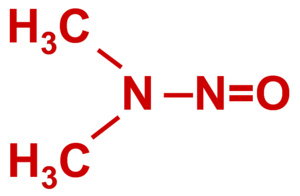Removal of Section 377 of IPC and Its Consequences| Ias Banenge
Context:
The Bharatiya Nyaya Sanhita (BNS) 2023, the proposed replacement for the Indian Penal Code (IPC), does not contain IPC Section 377 (or an equivalent section), which was read down by the Supreme Court in 2018.
Relevance:
GS II: Polity and Governance
READ MORE – Conjunctivitis (Pink Eye) |Ias Banenge
Dimensions of the Article:
- Section 377 of the IPC:
- Bharatiya Nyaya Sanhita (BNS) Bill, 2023: Impact on Rape Laws
- Conclusion
Section 377 of the IPC:
- Section 377 of the Indian Penal Code (IPC) outlines the following provision:
- “Anyone who voluntarily engages in unnatural sexual intercourse with a man, woman, or animal, contrary to the natural order, shall face imprisonment for life or imprisonment for a term up to ten years, along with a potential fine.”
- The explanation to this provision emphasizes that penetration is adequate for constituting the required carnal intercourse for the offense.
Historical Perspective:
- Over the years, advocates for LGBTQ rights and various communities argued that Section 377 was prejudiced and offered legal cover for the mistreatment and intimidation of same-sex couples.
Navtej Singh Johar v. Union of India Case (2018):
- In September 2018, the Supreme Court’s five-judge bench unanimously decriminalized consensual sexual activity between adults, regardless of their gender, and partially invalidated Section 377.
- The court characterized the portions of the section that criminalized consensual unnatural sex as “irrational, indefensible, and manifestly arbitrary.”
- It acknowledged Section 377’s misuse as a tool for discriminating against LGBTQ community members and subjecting them to harassment.
- The court clarified that the ruling pertained exclusively to consensual acts among adults and maintained that other aspects related to unnatural sex with animals and children remained enforceable.
Bharatiya Nyaya Sanhita (BNS) Bill, 2023: Impact on Rape Laws
- The IPC Section 377, which extended protection against rape to non-minor males, is absent in the proposed BNS Bill.
- In the IPC, Section 375 outlines rape and defines seven consent criteria for identifying rape by a man. The BNS Bill includes rape under Section 63.
Consequences and Criticisms:
- Critics express concerns that the current form of the BNS Bill might lead to the loss of legal safeguards for certain groups, including male victims of sexual assault.
- This apprehension arises from the proposed BNS’s gendered definition of “rape,” limiting it to acts committed by a man against a woman.
- After the 2018 ‘Navtej Johar’ Supreme Court verdict, which touched on consent and created ambiguities, calls were made for guidance in scenarios where consent was withdrawn, as in cases of gay partners.
- India’s existing laws on sexual assault do not recognize men as potential rape victims.
Conclusion:
- The proposed Bharatiya Nyaya Sanhita, 2023, does not account for safeguarding male victims of sexual assault.
- While the IPC currently protects “man, woman, or animal” against such violence, the BNS’s present version could jeopardize the legal protection afforded to men.
-Source: Indian Express





Pingback: About Russia’s Luna 25 |Ias Banenge